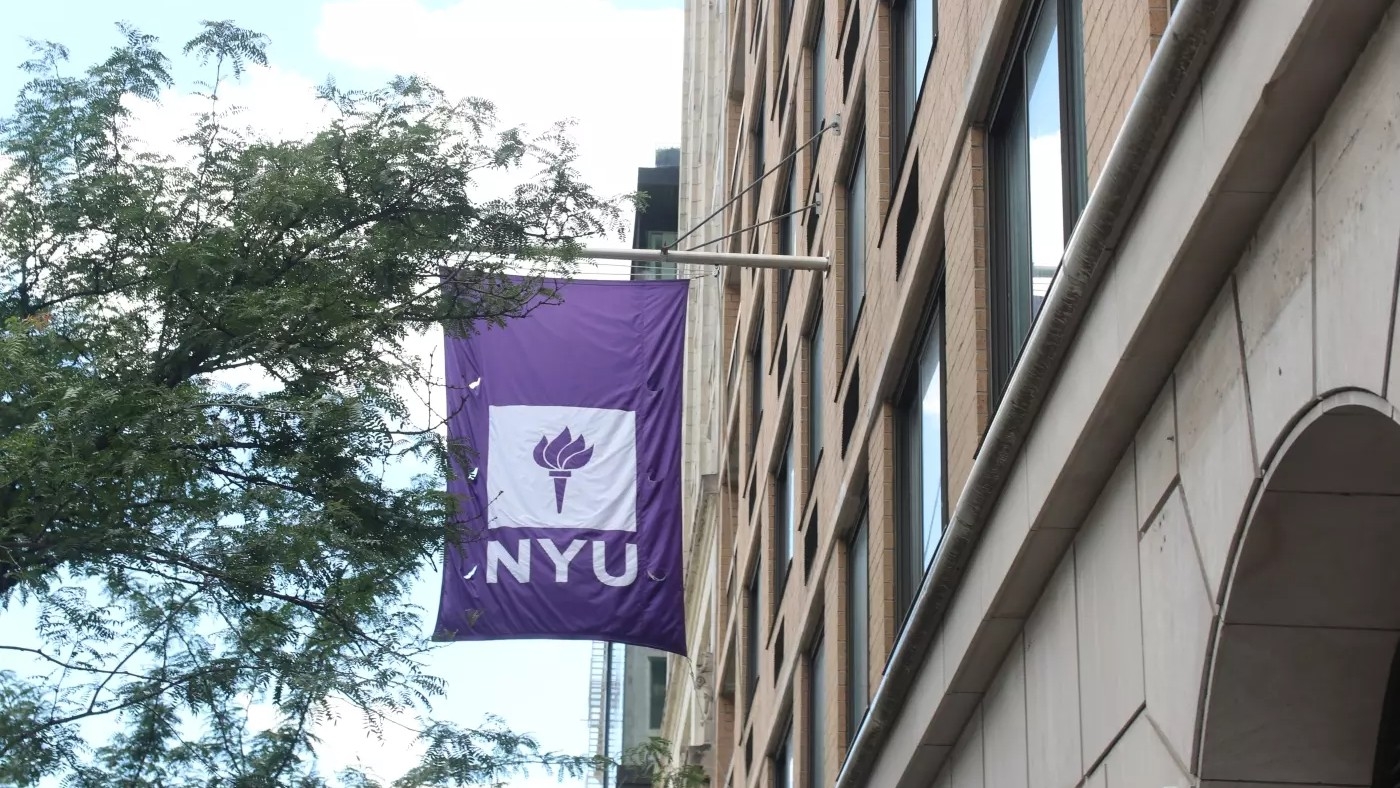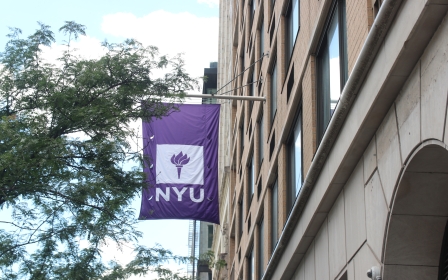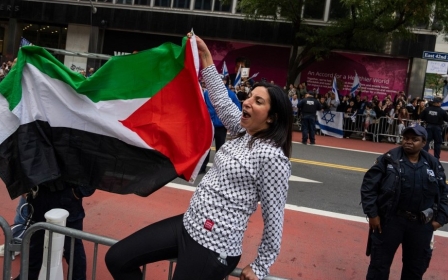Israel-Palestine war: NYU law student loses job offer at prestigious firm after pro-Palestine message

An NYU Law School student’s job offer with an international law firm was rescinded after they published a pro-Palestine message in the Student Bar Association (SBA) newsletter.
In a statement on Tuesday, the law firm Winston & Strawn wrote, without naming the student, that a former summer associate published “inflammatory comments regarding Hamas’ recent terrorist attack on Israel”.
The firm wrote that the comments were profoundly in conflict with their values as a firm.
“Winston stands in solidarity with Israel’s right to exist in peace and condemns Hamas and the violence and destruction it has ignited in the strongest terms possible.”
The bar association newsletter, published weekly, included a message from SBA president Ryna Workman, in which they wrote: “I want to express, first and foremost, my unwavering and absolute solidarity with Palestinians in their resistance against oppression toward liberation and self-determination.
New MEE newsletter: Jerusalem Dispatch
Sign up to get the latest insights and analysis on Israel-Palestine, alongside Turkey Unpacked and other MEE newsletters
“Israel bears full responsibility for this tremendous loss of life,” Workman wrote. “This regime of state-sanctioned violence created the conditions that made resistance necessary.”
Workman wrote that they would not condemn Palestinian resistance.
“I condemn the violence of trapping thousands in an open-air prison. I condemn the violence of collective punishment. I condemn the violence of phosphorous bombs. I condemn the violence of the United States military-industrial complex. I condemn the violence of obfuscating genocide as a ‘complex issue’. I condemn the violence in labelling oppressed people as 'animals'."
On Tuesday, the NYU Law Student Bar Association issued a statement saying that it had started procedures to initiate the removal of Workman as SBA president. The statement said that members of the SBA did not approve or see the message before it was published.
Troy McKenzie, the dean at NYU School of Law, put out a statement in response to Workman's comments saying that the message was not from the school as an institution and does not speak for the leadership of the law school.
“It certainly does not express my own views, because I condemn the killing of civilians and acts of terrorism as always reprehensible.”
'Moral values'
A professor at the college spoke to Middle East Eye requesting anonymity. She said that the law school did not take action against the student and most likely would not.
She explained that the main problem was that the student wrote something on official letterhead and appeared to speak for the entire student body.
“To me, that’s questionable judgement,” she said. “It puts the school in a difficult position because the law school was put in a position where it was understood by everyone to be the position of the law school.”
Maryam*, a student at NYU School of Law, told Middle East Eye that tensions have been high at the institution and, as a Muslim student, she's afraid of speaking out against Israel’s atrocities in public.
She added that hearing about Workman’s offer being rescinded has put her and others on edge.
“I ask myself if I am compromising my moral values by staying silent when I should be screaming at the top of my lungs for a free Palestine,” she said.
“But at the same time, I am the eldest daughter in my family. I don’t want to risk losing a job at a great firm. I don’t know what that makes me,” she chuckled. “A coward.”
She said that Workman’s message noted that it was a message specifically from the president, not the organisation.
“Ryna shouldn’t be punished for her thoughts. Ryna never said their message was from the entire SBA. They said it was from them,” she said. “Ryna is braver than I will ever be. But they're going to have to face the brunt of it all.”
Harvey Dale, an NYU professor of philanthropy and the law, told Middle East Eye that NYU students are free to speak their minds without any attempt by NYU Law School to censor them. However, their words, like everyone else's, can have consequences.
“If someone says something that I find offensive or false, I am of course free to take that into account in my dealings with that person. For example, if I wanted to hire someone to be a fundraiser for a nonprofit organisation, and - after offering that job to person X - I found out that X repeatedly spoke denigrating words about that nonprofit organisation, I would be (and should be) free to rescind my offer,” he said.
“People generally ought to be free to speak their words but no one should be ‘free’ to have his or her speech ignored if it is disagreeable to others.”
Middle East Eye was not able to reach Ryna Workman at the time of publication.
*Name has been changed
Middle East Eye delivers independent and unrivalled coverage and analysis of the Middle East, North Africa and beyond. To learn more about republishing this content and the associated fees, please fill out this form. More about MEE can be found here.




